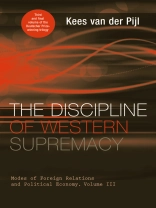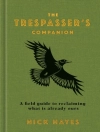Concluding the Deutscher Memorial Prize winning trilogy on ‘Modes of Foreign Relations and Political Economy’, this is a magisterial historical sociology of International Relations theory.
In The Discipline of Western Supremacy Kees van der Pijl argues that, from the late European Middle Ages, Anglophone thinkers articulated an imperial world-view which was adopted by aspirant elites elsewhere. Nation-state formation under the auspices of the English-speaking West has henceforth informed thinking about international affairs. After decolonisation the study of comparative politics continued to develop under those same auspices as part of a comprehensive framework.
As the first major sociological analysis of the field of International Relations, this book advances a comprehensive overview of mainstream IR as a set of theories which translate Western supremacy into intellectual hegemony.
Table des matières
Preface
Acknowledgements
1. Empire and Nationality in the Pax Britannica
2. The Crusade for Democracy and World Politics
3. Cold War Discipline in International Relations
4. The Pax Americana and National Liberation
5. The Crisis of International Discipline
References
Index
A propos de l’auteur
Kees van der Pijl is a Fellow of the Centre for Global Political Economy and Professor Emeritus at the University of Sussex. His books include The Disciple of Western Supremacy (Pluto, 2014) The Foreign Encounter in Myth and Religion (Pluto, 2010), the Deutscher prize-winning Nomads, Empires, States (Pluto, 2007).












